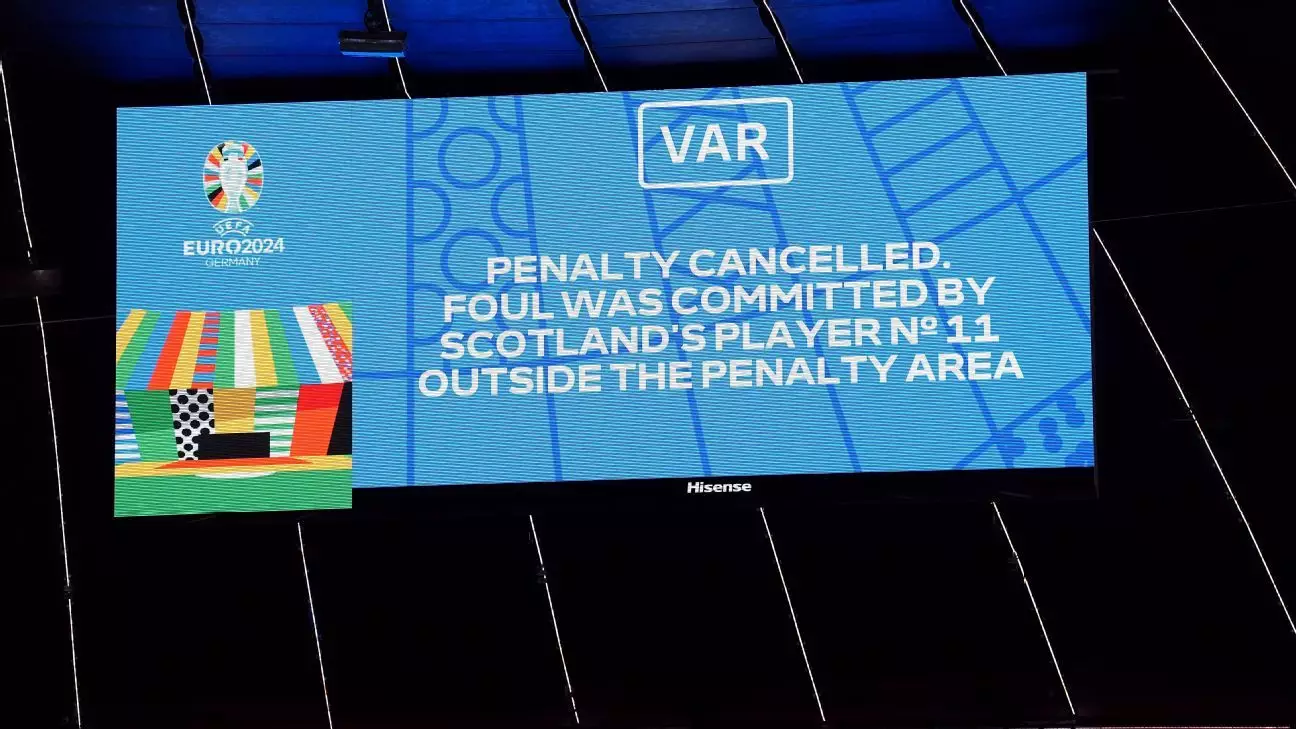The landscape of football officiating is poised for significant change as the International Football Association Board (IFAB) has recently approved expanded trials of a new system called Football Video Support (FVS). This innovative alternative to the traditional Video Assistant Referee (VAR) system aims to enhance the fairness and efficiency of officiating while providing coaches an unprecedented opportunity to challenge refereeing decisions during matches.
FVS presents a radical shift in how officiating can be approached, aligning itself closely with football’s core principles. Unlike VAR, which relies on a structured and centralized review process conducted by video assistant referees, FVS puts more agency in the hands of the coaches. With FVS, coaches can make up to two challenges per game if they believe a refereeing mistake has occurred. This model not only reduces the emotional strain typically felt during matches but also promotes a proactive engagement from team leaders.
Having previously been utilized at the U20 and U17 FIFA Women’s World Cups, FVS was deemed effective enough to warrant further testing in various competitions. Pierluigi Collina, the chairman of FIFA’s referees’ committee, voiced strong support for FVS, emphasizing its potential in leagues that do not have the financial capacity to implement working VAR systems.
The lack of resources in certain leagues can hinder their ability to maintain high standards of officiating, forcing them to operate without the benefit of advanced technology. FVS is tailored for environments where only a limited number of cameras—ideally four to five—are available. This restriction is critical; while it creates limitations in the degree of scrutiny available for controversial calls, it does not disparage the urgency of making an immediate resolution through the challenge system.
Collina asserted that competitions like the Women’s Super League could significantly benefit from FVS, addressing the manifold challenges posed by varying stadium types and sizes. This aligns with the broader ethos of making football more equitable and accessible, thereby encouraging lesser-known leagues to adopt technology that enhances the integrity of their matches.
Despite its promise, the FVS system does come with inherent limitations. Due to the reduced number of cameras, FVS may miss certain nuances that VAR could easily catch, especially in cases such as offside decisions. As Collina pointed out, only clear cases of offside would be identifiable without the specialized camera setups typical of higher-tier leagues. This calls for a recalibrated expectation from both players and fans—FVS should not be viewed as a panacea but rather as a supplementary tool designed to support referees rather than overshadow them.
Furthermore, the implementation of FVS introduces a different workflow during matches. In this new framework, when a coach challenges a decision, the referee is required to step to the side of the pitch to review the incident. There is no intermediary suggesting that a ‘clear and obvious error’ has occurred; instead, the referee independently assesses their judgment based on the review.
In addition to the trials surrounding FVS, the IFAB is exploring other innovations aimed at refining officiating standards. Discussions have centered around improvements to existing trials involving goalkeepers holding the ball too long and limiting communication with referees exclusively to captains. Such measures could foster a more streamlined flow of the game, enhancing its overall spectator appeal.
The inclusion of semi-automated offside technology and referee body cameras is also on the agenda for future assessments. These advancements underscore a commitment to leverage technology meaningfully while ensuring it respects the traditional spirit of football.
As the IFAB gears up for its Annual General Meeting in March, the landscape of football officiating could see substantial amendments in the approach adopted by leagues worldwide. If successful, FVS and related innovations could offer an inclusive framework that levels the playing field across competitions—no matter their financial resources. As the game evolves, the blend of tradition and innovation will be tested, ultimately aiming for a future where fair play is universally upheld.
